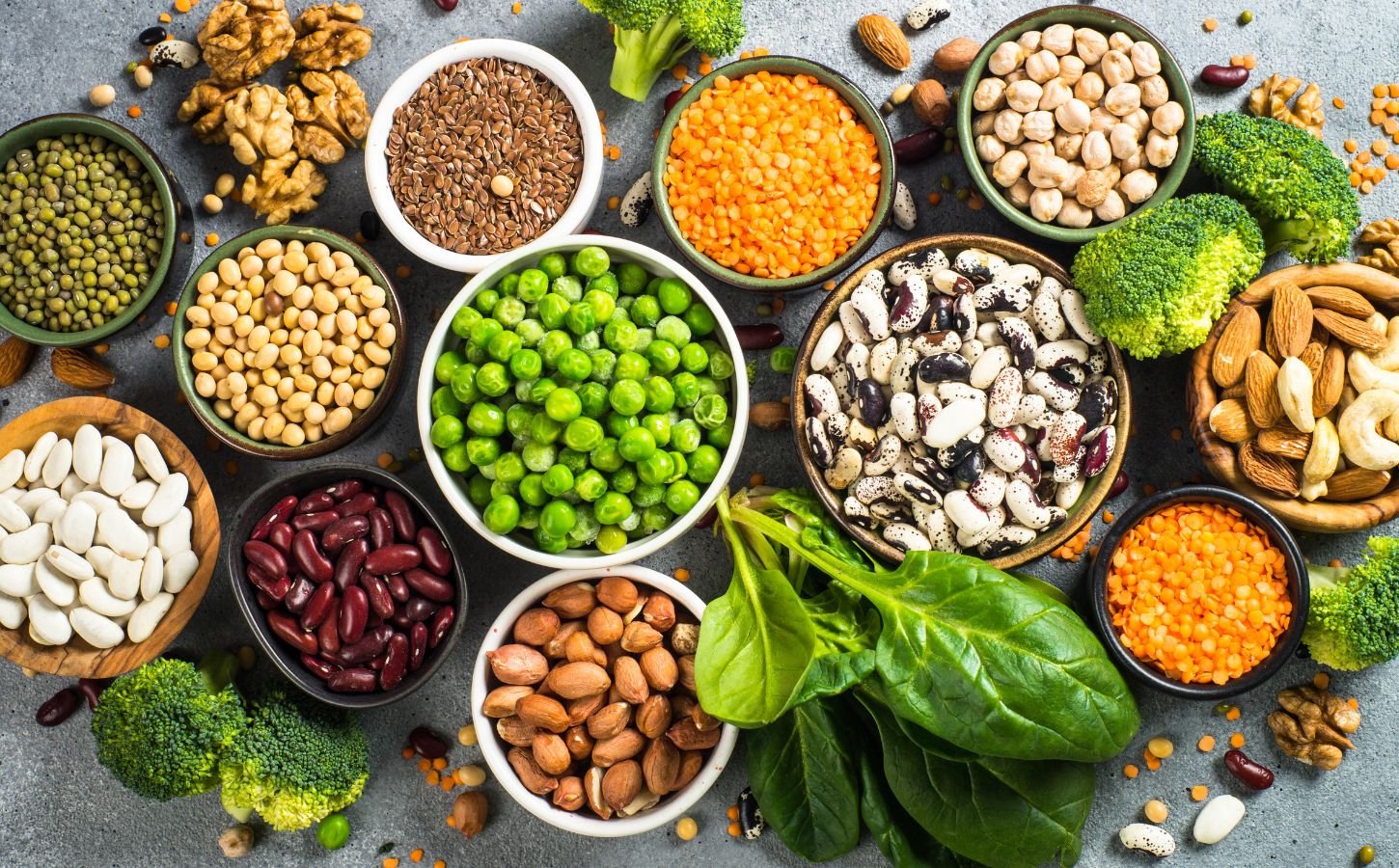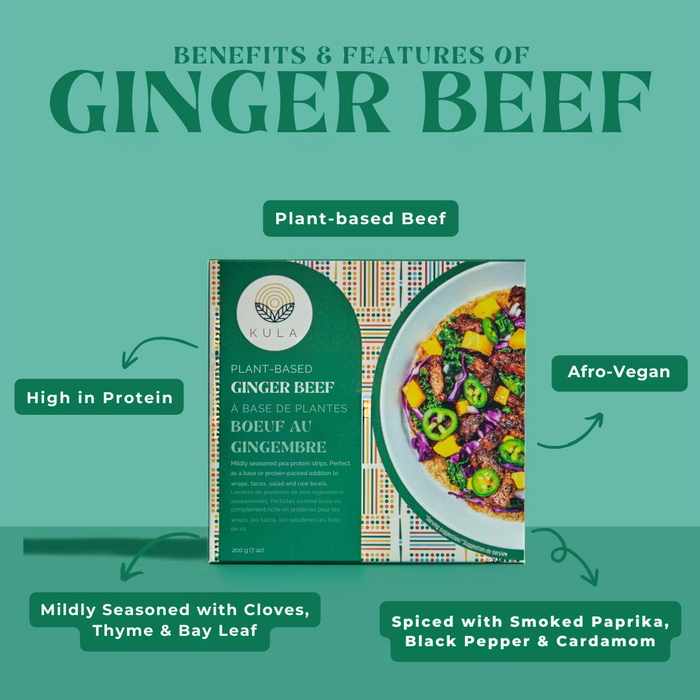Why Sugar Free Sauces Are a Game-Changer for Your Plant-Based Pantry
Why Sugar Free Sauces Are a Game-Changer for Your Plant-Based Pantry
Blog Article
Everything About Healthy And Balanced Food: Advantages of Embracing Plant Based Alternatives
The discussion surrounding plant-based diets has gained substantial attention in recent years. Several people are discovering the possible wellness benefits, nutritional advantages, and ecological effects related to these dietary selections. As individuals become much more knowledgeable about their food's influence on health and sustainability, questions occur concerning the functionalities of embracing such a way of living. What details adjustments can one anticipate, and how might these selections reshape not only personal health and wellness yet likewise the world's future?
Comprehending Plant-Based Diet Plans
Although many individuals connect plant-based diet plans mainly with vegetarianism or veganism, these diet regimens can include a variety of consuming patterns that focus on whole, minimally processed plant foods. Such diet plans frequently consist of fruits, vegetables, entire grains, legumes, seeds, and nuts, while eliminating or restricting pet items. This versatility permits people to customize their dietary choices according to nutritional needs and individual preferences. Some might adopt a primarily plant-based diet regimen while still periodically consuming meat or dairy, usually referred to as a flexitarian approach. The focus remains on incorporating even more plant foods, which can cause a varied range of flavors and dishes. Recognizing these numerous interpretations of plant-based eating is essential for valuing its access and charm in modern food culture.
Health And Wellness Conveniences of Plant-Based Foods
The health advantages of plant-based foods are substantial, providing a nutrient thickness benefit that supports overall health. Research study indicates that these foods can enhance heart health and play an important duty in reliable weight management. By incorporating extra plant-based options, people might boost their dietary selections and advertise long-term wellness.
Nutrient Thickness Benefit
Nutrient thickness plays a crucial duty in the health benefits of plant-based foods, making them a compelling choice for those seeking a balanced diet plan. Plant-based foods, such as fruits, veggies, legumes, nuts, and whole grains, are typically abundant in important vitamins, minerals, and antioxidants while being lower in calories. This high nutrient density permits people to eat fewer calories while still fulfilling their nutritional demands. Furthermore, these foods are packed with dietary fiber, advertising digestive system health and aiding in weight monitoring. By integrating nutrient-dense plant-based options, customers can enhance their total wellness, support their body immune systems, and reduce the risk of chronic conditions. Ultimately, the nutrient density of plant-based foods highlights their importance in a health-conscious way of life.
Heart Wellness Improvement

Weight Monitoring Assistance
In addition to advertising heart wellness, a plant-based diet can substantially assist in weight monitoring. This nutritional strategy stresses whole foods such as fruits, veggies, legumes, nuts, and whole grains, which are generally reduced in calories and higher in fiber contrasted to animal-based products. The high fiber material assists increase satiety, reducing total calorie consumption. Additionally, plant-based diet plans are typically abundant in necessary nutrients while reduced in harmful fats, making it less complicated to maintain a healthy and balanced weight. BBQ Sauces. Study indicates that individuals who embrace a plant-based lifestyle tend to have reduced body mass indexes (BMIs) and experience more effective fat burning compared to those who consume meat-heavy diet regimens. As a result, accepting plant-based alternatives is a strategic option for reliable weight monitoring
Nutritional Worth of Plant-Based Components
Plant-based active ingredients are rich in important nutrients, supplying a diverse array of vitamins, minerals, and anti-oxidants that add to overall wellness. A contrast of protein sources reveals that while animal products are often considered as exceptional, numerous plant-based alternatives supply adequate healthy protein and various other advantageous compounds. Recognizing the dietary value of these components can assist people make educated dietary choices.
Necessary Nutrients in Plants
Nutrient-rich components located in plants provide a diverse selection of crucial vitamins and minerals that add considerably to overall health and wellness. These components are rich in vitamins A, C, and K, which sustain immune feature, vision, and blood clotting, respectively. Additionally, plants offer essential minerals such as potassium, calcium, and magnesium, crucial for heart health and wellness, muscular tissue function, and bone stamina. The presence of fiber in plant-based foods help digestion and advertises a healthy and balanced intestine microbiome. Anti-oxidants, discovered generously in vegetables and fruits, assistance combat oxidative stress and reduce swelling. Additionally, several plant foods are reduced in calories yet high in nutrients, making them a superb selection for those looking for to maintain a healthy and balanced weight while guaranteeing perfect nutrient consumption.
Comparing Protein Sources
Protein resources vary significantly in their nutritional profiles, with plant-based ingredients supplying unique benefits. Unlike animal healthy proteins, which frequently include hydrogenated fats and cholesterol, plant healthy proteins often tend to be reduced in these undesirable parts. Legumes, nuts, seeds, and entire grains are abundant in vital amino acids, fiber, vitamins, and minerals. For example, lentils provide high healthy protein content along with significant iron and folate, while quinoa is a full healthy protein, providing all nine crucial amino acids. In addition, plant-based proteins are often gone along with by antioxidants and phytochemicals that support general health. The shift to plant-based healthy protein sources not just improves nutritional intake yet additionally lines up with sustainable dietary practices, lowering environmental impact and advertising long-lasting health advantages.
Ecological Influence of Plant-Based Eating
As awareness of environment adjustment expands, many individuals are exploring sustainable dietary selections that can significantly minimize their ecological footprint. Plant-based eating has arised as a considerable factor to decreasing greenhouse gas emissions, which are mainly connected with animals manufacturing. The growing of fruits, vegetables, grains, and veggies generally calls for less sources, such as water and land, compared to animal farming. Additionally, plant-based diet plans can cause decreased logging, as much less land is needed for grazing animals or expanding animal feed. By shifting in the direction of plant-based choices, consumers can support biodiversity and promote much healthier ecosystems. Generally, welcoming plant-based eating not just advantages personal health and wellness yet likewise stands for a vital action towards environmental sustainability and preservation initiatives.
Conquering Common Misconceptions
While numerous individuals recognize the advantages of a plant-based diet regimen, numerous misunderstandings typically discourage them from totally welcoming this way of life. An usual idea is that plant-based diet regimens do not have sufficient protein; nevertheless, numerous plant sources, such as vegetables, nuts, and tofu, offer adequate protein. Additionally, some presume that this diet is costly, when in reality, staples like beans, rice, and seasonal vegetables can be rather affordable. One more false impression is that plant-based eating is overly restrictive, whereas it actually supplies a diverse array of foods and flavors. Lastly, lots of fret that a plant-based diet might lead to shortages, yet with appropriate preparation, individuals can obtain all required nutrients, including minerals and vitamins, while enjoying a wide array of scrumptious meals.
Tips for Transitioning to a Plant-Based Way of life
Making the change to a plant-based way of living can be an enhancing experience, though it usually requires some assistance to navigate the preliminary changes. First, people are encouraged to begin progressively, incorporating even more fruits, veggies, legumes, and entire grains into their meals while minimizing meat and dairy usage. Meal preparation is essential; preparing a regular food selection can aid relieve the adjustment and prevent final undesirable options. Exploring cooking approaches and new recipes can likewise keep and boost the experience enjoyment about plant-based consuming. In addition, signing up with support groups or neighborhoods can provide inspiration and share important suggestions. Lastly, staying educated about nourishment guarantees well balanced meals, stopping shortages while cultivating a healthy, gratifying plant-based way of living.
Delicious Plant-Based Dish Ideas
Exploring scrumptious plant-based dish ideas can inspire individuals to welcome an extra explanation healthy diet plan. One preferred alternative is a hearty quinoa salad, featuring cherry tomatoes, cucumber, and a vibrant lemon-tahini dressing. One more fave is a full-flavored lentil stew, packed with carrots, celery, and great smelling herbs, perfect for a calming dinner. For morning meal, overnight oats made with almond milk, chia seeds, and topped with fresh berries offer a nutritious begin to the day. In addition, a lively vegetable stir-fry with tofu and a selection of vibrant veggies can be a quick yet pleasing meal. Finally, luscious avocado salute on whole-grain bread, sprinkled with seasonings and seeds, provides a simple yet flavorful YOURURL.com snack. These meals display the variety and splendor of plant-based eating.

Often Asked Inquiries
Can a Plant-Based Diet Regimen Supply Sufficient Protein?
The inquiry of whether a plant-based diet plan can give adequate protein prevails. Various resources, consisting of beans, nuts, seeds, and whole grains, can meet healthy protein needs successfully, sustaining a well balanced and nourishing diet regimen for individuals.
Are Plant-Based Diet Regimens Ideal for Kid?
The suitability of plant-based diets for kids depends on careful planning. Adequate nutrients need to be ensured, including proteins, minerals, and vitamins. With correct guidance, such diet regimens can sustain healthy and balanced growth and growth in youngsters.
Exactly how Do I Eat in restaurants on a Plant-Based Diet?
Eating in restaurants on a plant-based diet plan entails seeking restaurants with diverse menus, asking for modifications, and checking out vegan-friendly choices. Preparation in advance and communicating nutritional choices can improve the eating experience while maintaining nutritional selections.
What Are Typical Allergens in Plant-Based Foods?
Usual irritants in plant-based foods consist of soy, gluten, Source nuts, and seeds - Gluten Free BBQ Sauce. Individuals following a plant-based diet should recognize these allergens and check out labels thoroughly to stay clear of damaging responses and assure risk-free usage
Can Plant-Based Diets Aid With Weight-loss?
Study shows that embracing a plant-based diet regimen might facilitate fat burning because of its usually reduced calorie density and higher fiber content. This mix can boost satiation, aiding individuals manage their calorie intake successfully. Numerous people link plant-based diet plans mostly with vegetarianism or veganism, these diet plans can include a wide range of eating patterns that focus on whole, minimally processed plant foods. Nutrient thickness plays a necessary duty in the wellness advantages of plant-based foods, making them an engaging choice for those looking for a well balanced diet regimen. Plant-based diet plans have actually been revealed to substantially improve heart health, as they frequently contain components that support cardio feature. In enhancement to promoting heart wellness, a plant-based diet regimen can substantially aid in weight management. A common idea is that plant-based diets lack sufficient healthy protein; nevertheless, many plant sources, such as vegetables, nuts, and tofu, give enough healthy protein.
Report this page